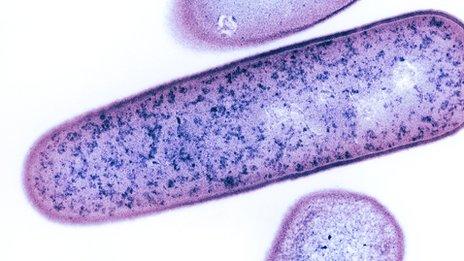Weight loss: Is the secret in your bacteria?
- Published
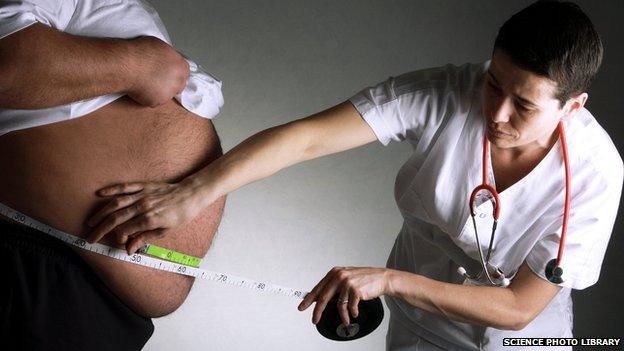
A volunteer lost a stone every three weeks for six months on a diet which changed his gut bacteria
The search for the most successful way to shed the pounds seems never-ending.
Now researchers in China have looked at what impact gut bacteria have on people's weight.
They think that changing the type of bacteria found in the gut may be more effective at helping people to shed weight than cutting calories alone.
But can it really be as simple as that?
Experts warn we shouldn't ditch the cucumber sticks and hot yoga just yet.
The latest World Health Organization figures show there were more than 1.4 billion adults aged 20 or older who were overweight in 2008.
Of these, 200 million men and nearly 300 million women were obese.
Those numbers are rising - they have doubled since 1980.
Lab tests in mice found an association between bacteria and obesity, but trials with people are only just getting started.
In a clinical trial, published in the journal Microbiology Ecology, external, scientists in Shanghai studied 93 obese people who started with an average Body Mass Index (BMI) of 32.
They fed the volunteers supplements that promoted the growth of certain types of bacteria and reduced the levels of other bacteria in the gut, alongside a balanced diet.
At 30-day, nine-week and 23-week intervals, participants filled in a questionnaire about what they had eaten in the last 24 hours and were physically examined after overnight fasting. They were also weighed and measured.
People in the trial lost on average 5kg over nine weeks, and the 45% who carried on for 23 weeks lost on average 6kg. Their average BMI fell to 29.3.
One morbidly obese patient who was studied as a precursor to the trial lost 51kg, in six months - or about a stone every three weeks.
The paper says patients' levels of the C-reactive protein, linked to clogged arteries and damage to blood vessels in the heart, was also reduced during the trial.
But the study notes: "Admittedly, the self-controlled nature of this study does not allow to infer that all described effects are due to manipulation of gut microbiota."
.jpg)
The diet included prebiotics, such as artichokes
No cravings?
Prof Liping Zhao, at Shanghai Jiao Tong University, worked on the study.
He says higher levels of toxin-producing bacteria, such as enterobacteria, in the gut can lead to insulin resistance, which means people would not feel full after eating one bowl of rice, instead needing five, 10 or 20 bowls to feel full.
"Their bodies were not telling them they are satisfied," he says.
Prof Zhao says changing the bacteria could switch on a gene which makes the body burn fat.
He says if a person is fed a calorie-restricted diet alone, their ability to lose weight could be impaired if their gut still contains high levels of the type of bacteria, which deactivates the gene that, he says, switches on fat-burning.
He adds: "It is about time to make the public see the kind of scientific evidence we have that really shows we can be confident that gut bacteria have a pivotal role in obesity."
Bacteria changing behaviour?
But there are doubts about the drivers of the effect.
When looking at the ever-complex world of the bugs living inside us, and the nuanced way these bacteria interact with our bodies, there are concerns about adopting hard and fast rules about what does and does not work.
Dr David Weinkove, at Durham University, said the study was interesting.
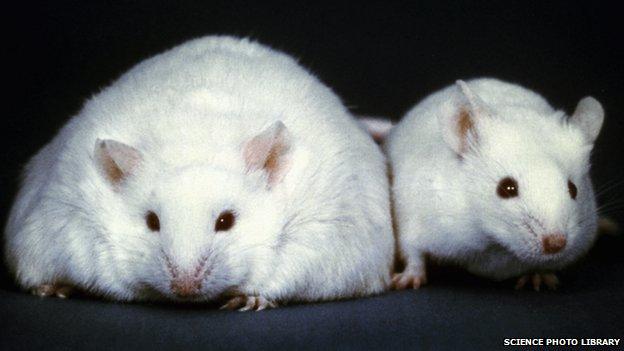
The study in China followed earlier work in mice which were given gut bacteria from an obese person
But he said the study did not show whether or not changing the bacteria in the diet actually caused the weight loss, or was just linked to it.
Dr Weinkove adds: "What is interesting is whether the microbes can change your behaviour, and that is causing obesity. That is a really fascinating area."
Prof Sir Stephen Bloom, at Imperial College London, says: "There are 10 times more bacteria in the body than cells. We are basically trolleys carrying bacteria around so they can be fed."
He says there is "no question" that changing the bacteria in people's bodies can have significant effects. For example, he says, dysentery introduces different bacteria into the gut and causes weight loss.
'Eat less'
Prof Bloom says it is very hard to "disentangle" what makes people lose weight when they are put on diets, as just changing what people eat tends to make them lose weight, as they are doing something different from usual.
He says people in China have different bacteria to those in the UK, so it is difficult to compare.
His advice is simple: "Eat less and take more exercise. If you eat less, you will always lose weight."
Dr Alison Tedstone, director of diet and obesity at Public Health England, says: "Overall, obesity is about eating more calories than we expend. There are many things that impact upon our gut bacteria, the key one being what we eat.
"While interesting associations are described in the study, there remain issues with the translation of the studies into meaningful advice for the general public."
She advises people to eat a "healthy, balanced diet", and be active to get to a healthy weight.
- Published13 January 2014
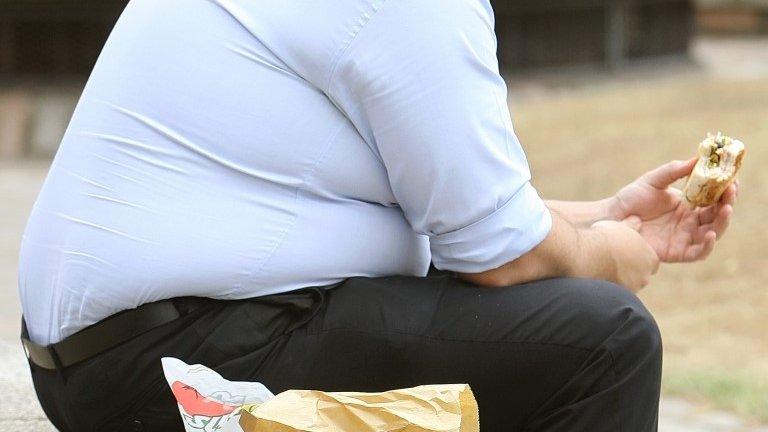
- Published11 December 2011
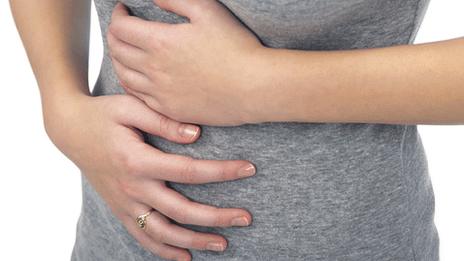
- Published25 October 2012
